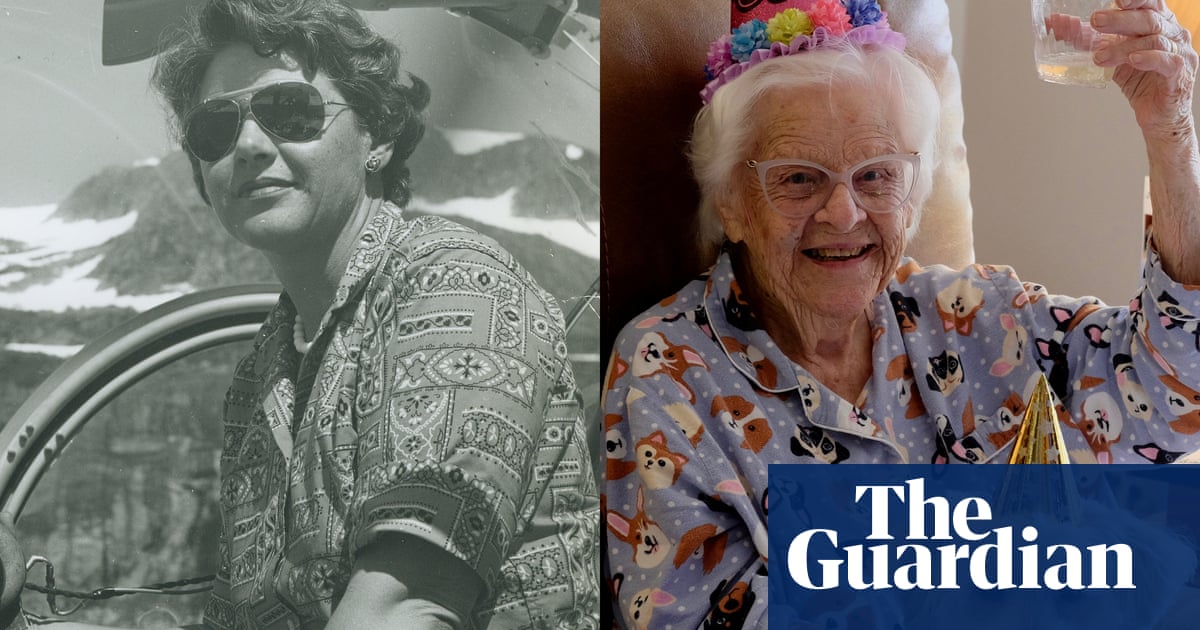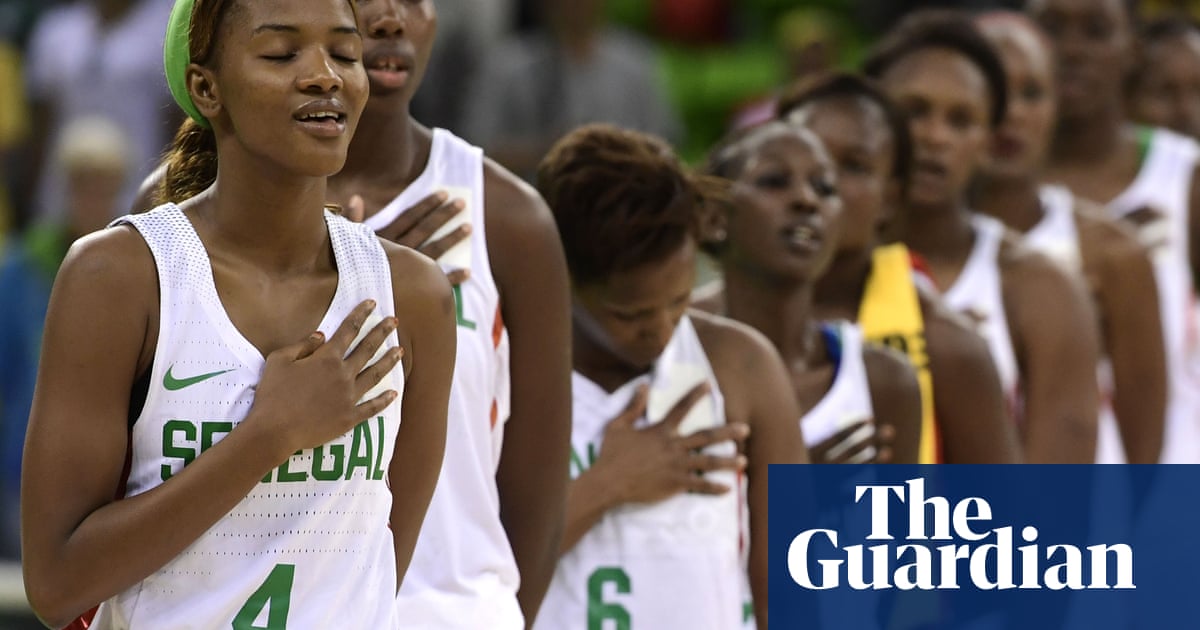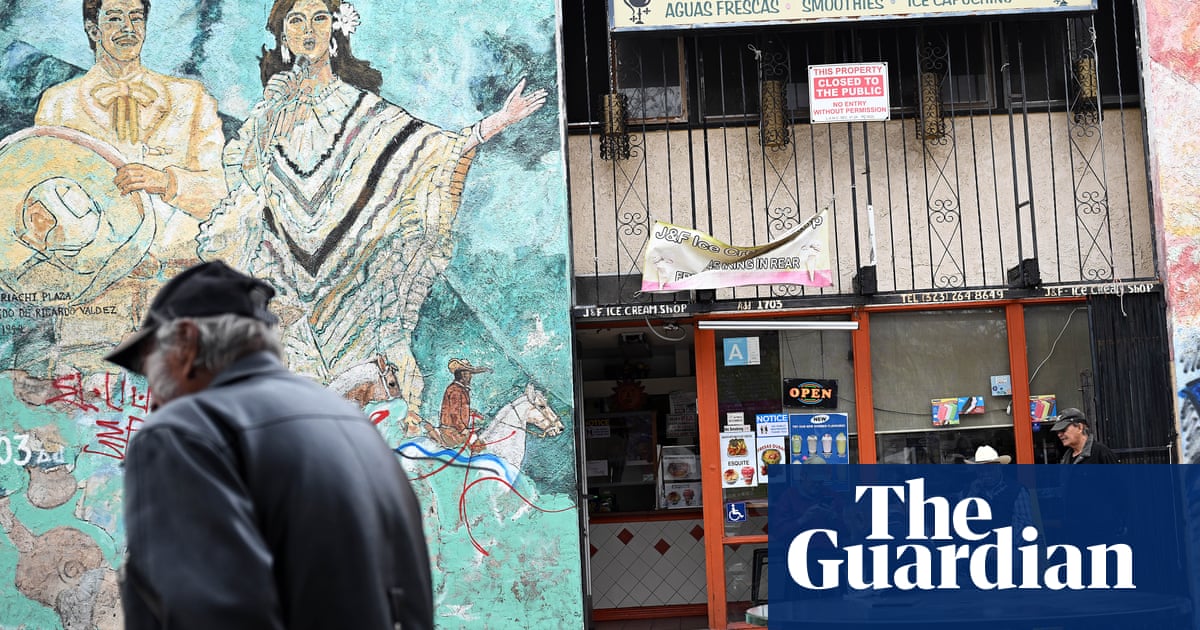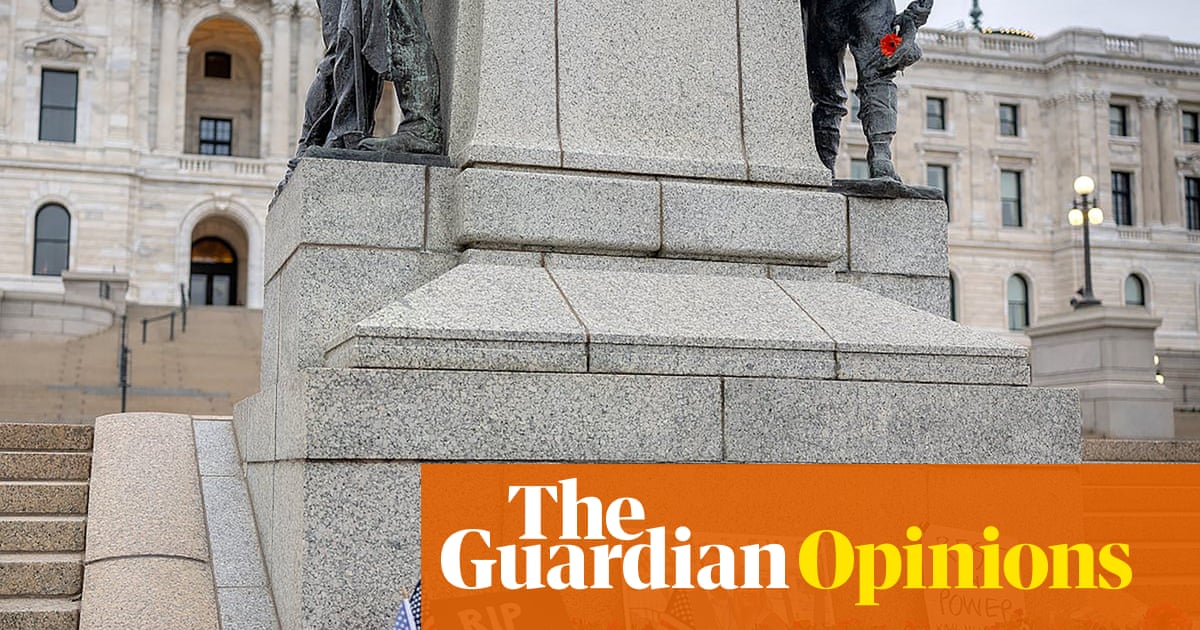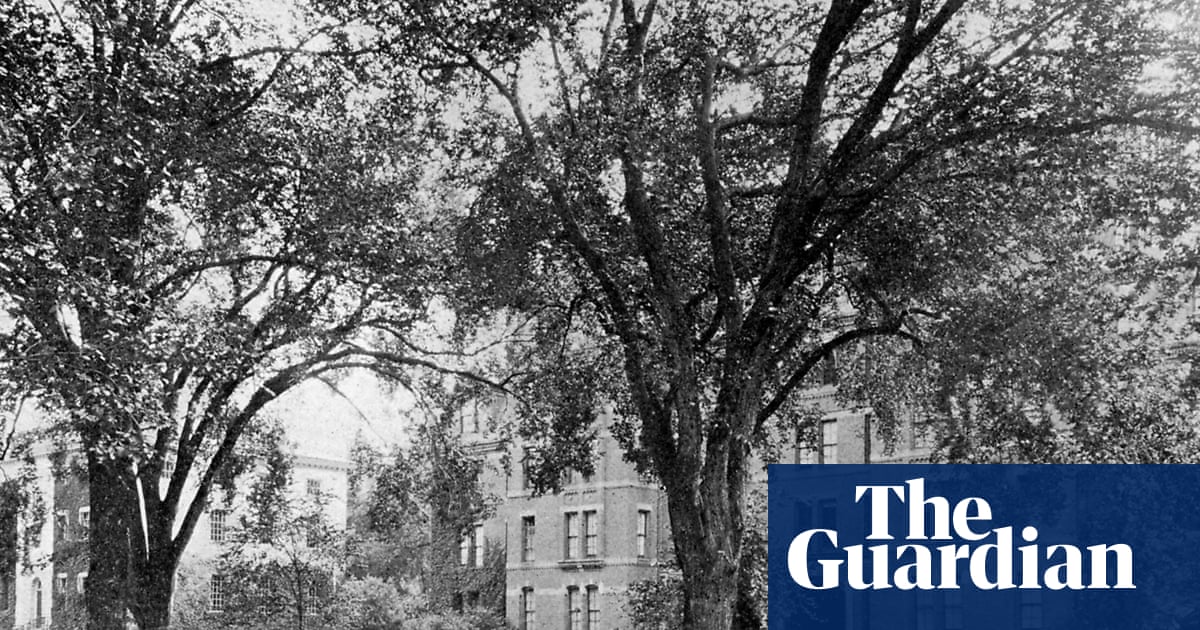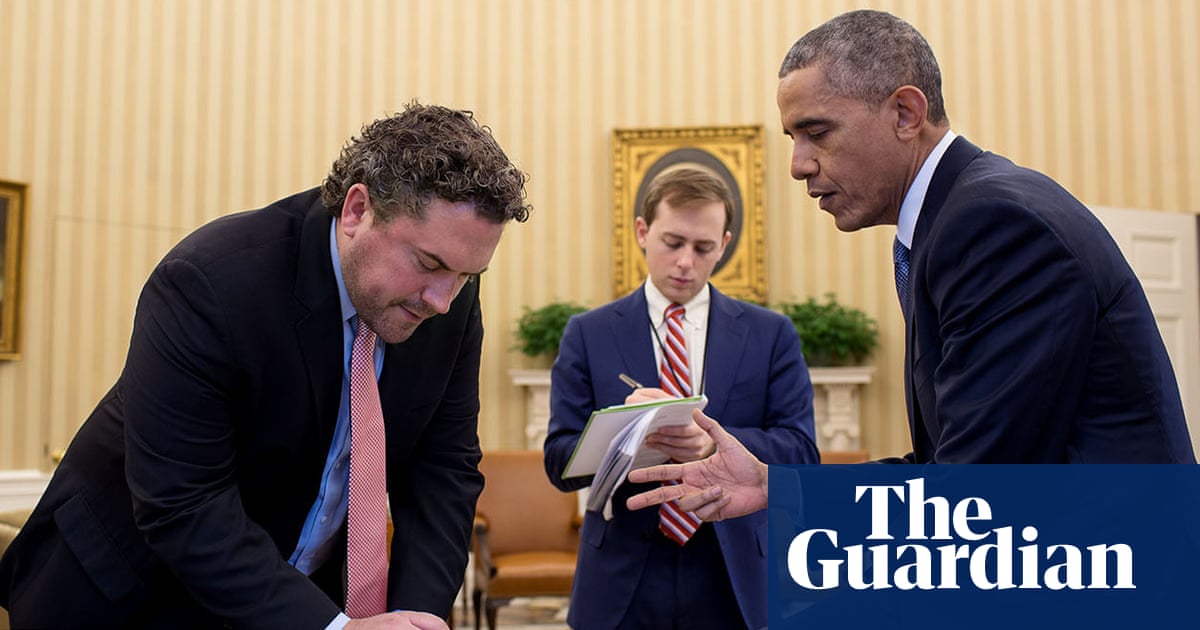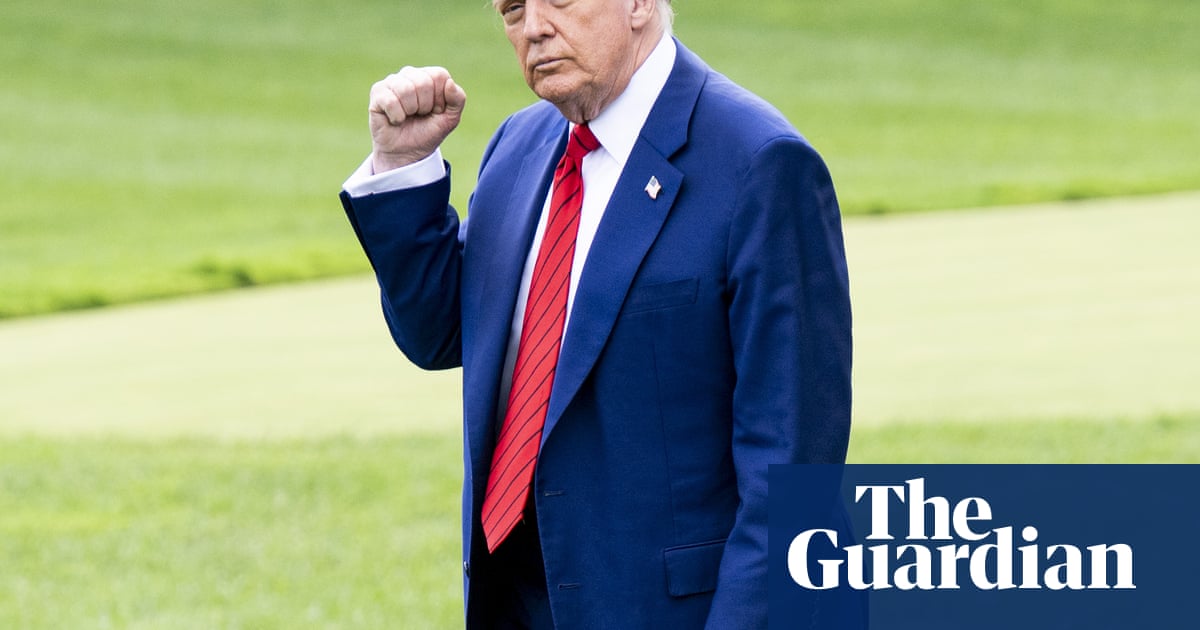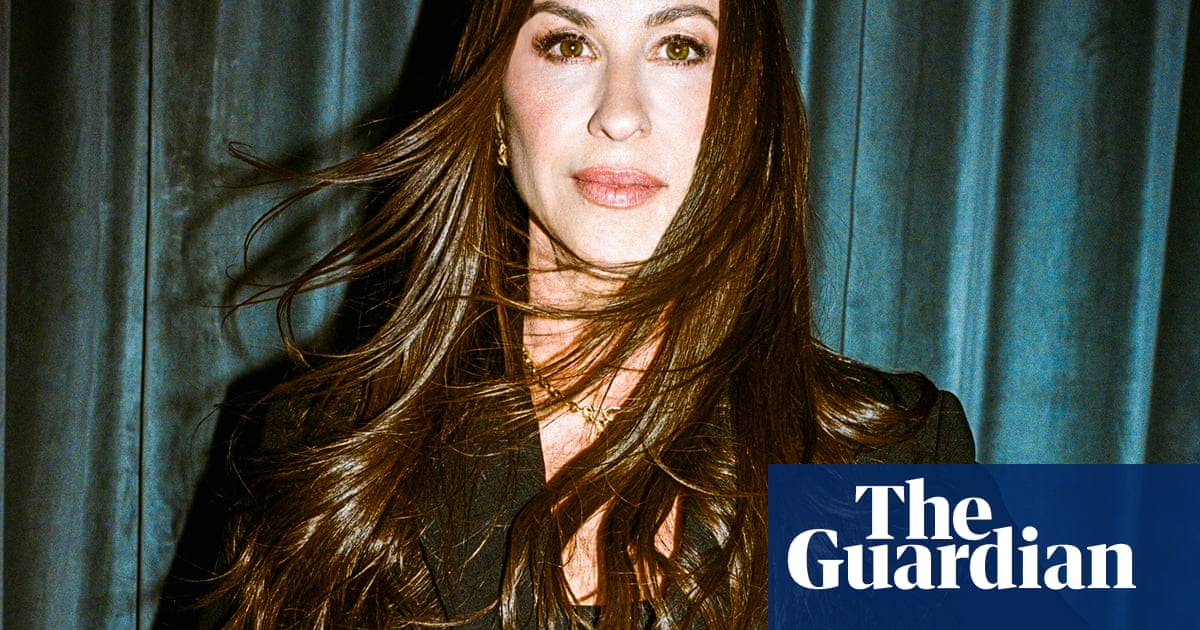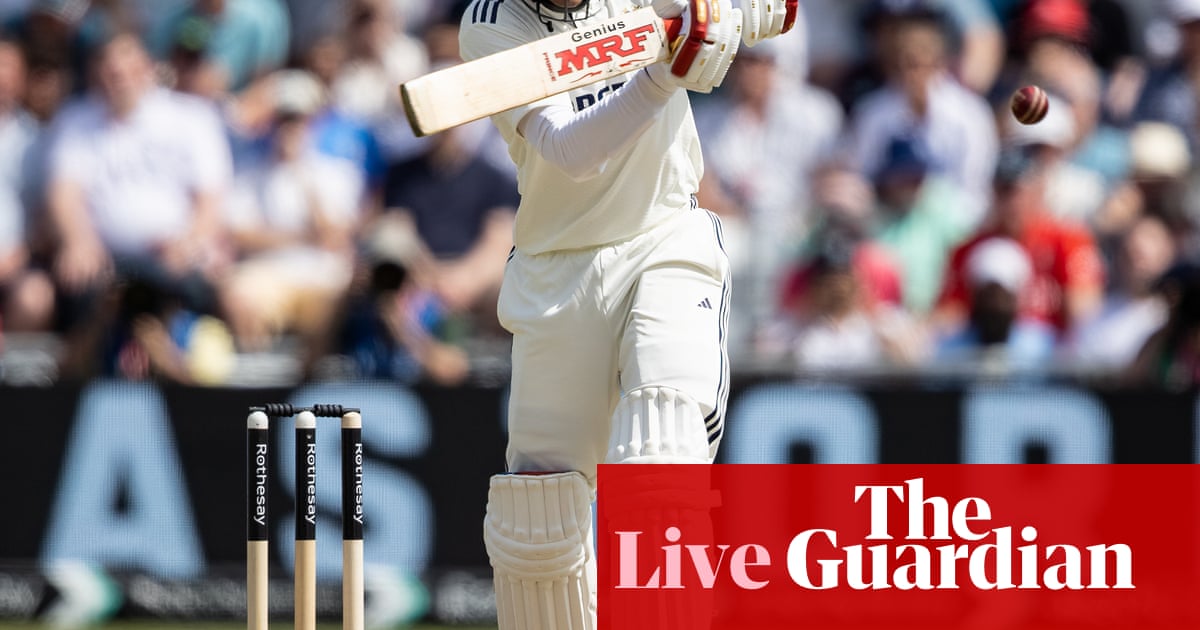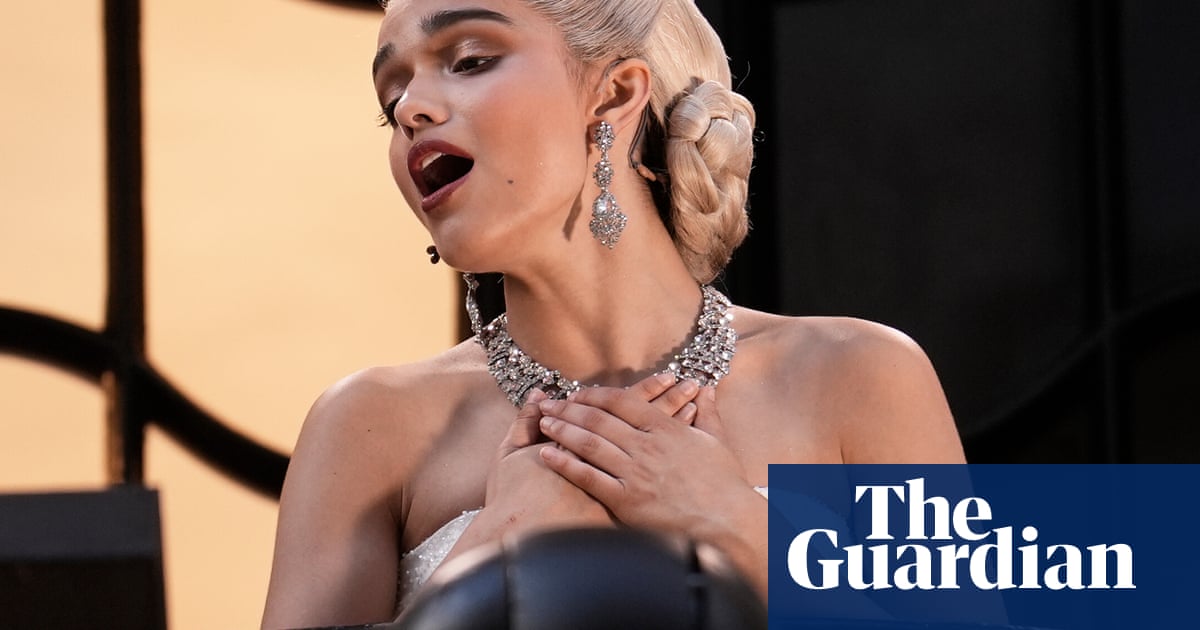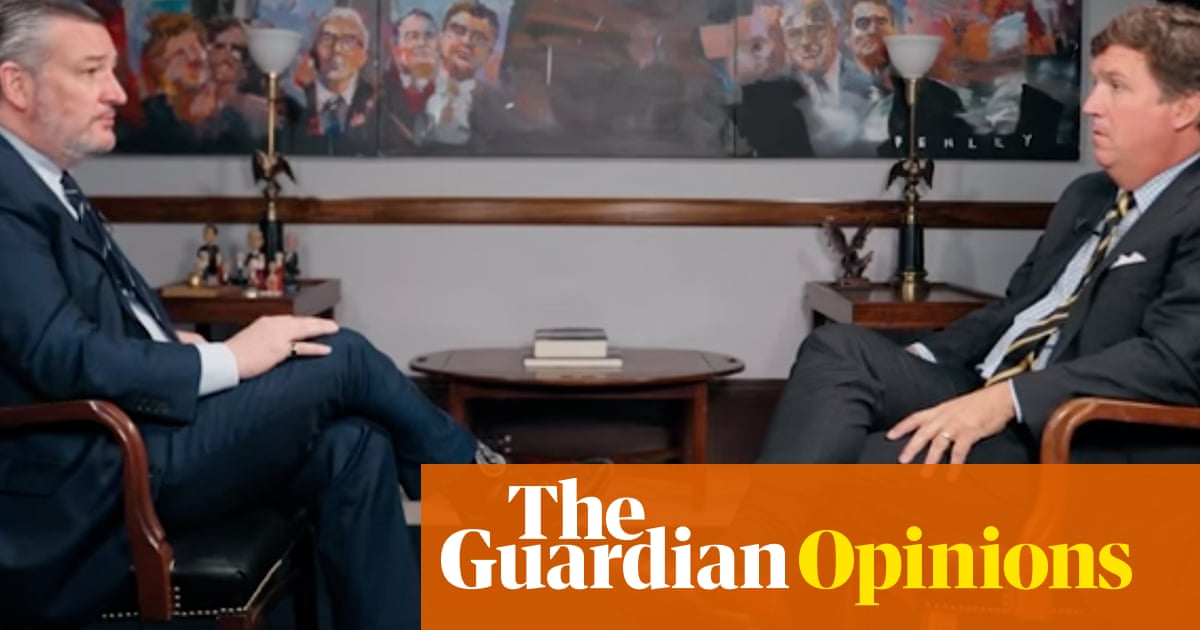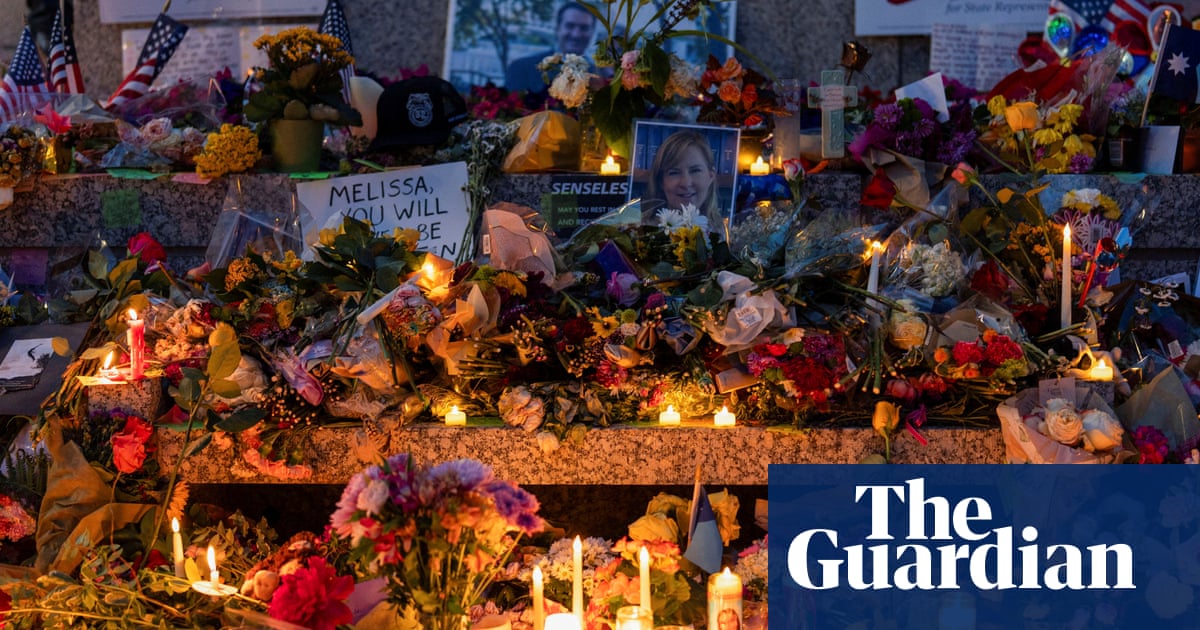Wimbledon runs through Nick Kyrgios’s tumultuous career with a mysterious force full of pain, glory and controversy. It is a tournament defined by history and restraint but, for Kyrgios the disruptor, it is also a place pitted with dark despair and sunlit magic.
The Australian has spent a night in a psychiatric ward while playing at Wimbledon and also been served with court orders and lawsuits during and after the 2022 championship that ended in him pushing Novak Djokovic so hard in a memorable final. But he has since struggled with injury and he will miss his third successive Wimbledon this year.
He still can’t keep away. Kyrgios returns for a live performance of his podcast, Good Trouble, at the New Wimbledon Theatre on 24 June. But he pauses when asked what this strange and beautiful place means to him: “Wimbledon holds special memories for me. It’s the first grand slam where I broke through and it’s the pinnacle of tennis. Every time you step into the grounds you feel the energy and the aura. But I don’t always feel so comfortable there either because I don’t act like the normal tennis player. Wimbledon takes note of that a lot. I definitely feel like a snowman in the desert there but I enjoy it.”
Kyrgios cackles when I ask if he expects a few hecklers to join his secret guests at his Wimbledon show. “I hope so. I really enjoy people that don’t necessarily like how I go about things. If they want to come and heckle, I’m all for it. Open invitation, please.”
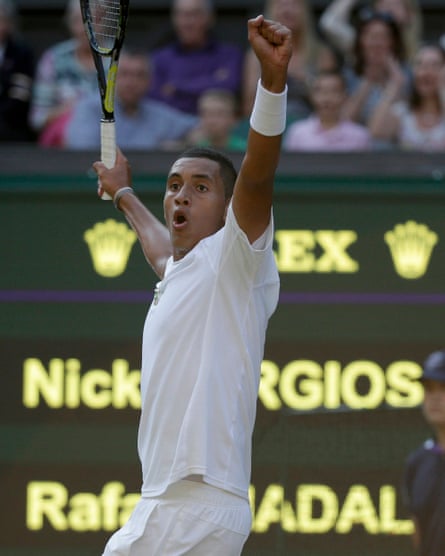
Past guests on his podcast range from Mike Tyson and Naomi Osaka to Matthew McConaughey and Djokovic. Kyrgios starts each episode by asking his guests what “good trouble” means to them. For Kyrgios, “good trouble” means “shaking things up, not always doing things the way we’re taught. The one thing that stands out for me, being a tennis player in a Roger Federer-esque sport where you fit into a mould, is that I’ve gone against the grain my whole career. I’ve definitely shaken things up and done it my way”.
We revisit his tournament debut in 2014 and I ask Kyrgios to describe his initial impressions of Wimbledon. “That I was at the top of the tennis world. If you play Wimbledon multiple times you’re playing in front of the Royal Box on a court where every blade of grass is the same length. If you make it on to that stage the journey has been worth it.”
Kyrgios was given a wildcard that year and he played sublime tennis to beat Rafael Nadal in the fourth round. Nadal made only 18 unforced errors over four sets, but he couldn’t contain the fire and brilliance of the Canberra teenager. Kyrgios hit 37 aces and 70 winners, including a between-the-legs flick that almost brought Centre Court down with delirium. John McEnroe said: “We have a new star on our hands.”
“It was life-changing,” Kyrgios says, “but I wasn’t ready at that age [19] to take on the responsibility.”
Five years later he played Nadal in the second round. It was another engrossing match studded with acrimony. He lost in four sets but attention focused afterwards on the fact he had tried to hit Nadal with a ball. “The dude has got how many slams, how much money in the bank?” Kyrgios said afterwards. “I think he can take a ball to the chest, bro. I’m not going to apologise to him.”
Yet, as Kyrgios revealed years later in the Netflix documentary Break Point, he was in turmoil. He was drinking and self-harming to the point where he had to wear a compression sleeve on his arm to hide the scars. He spoke of how, in the aftermath of losing to Nadal, he was admitted to a psychiatric ward in London.
But Kyrgios says something subtly different now when I ask if he can take us back to his time under psychiatric care: “I had to go and play Nadal the next day. I didn’t really have a choice.”
I am so surprised that I ask Kyrgios if he really had been on the psychiatric ward the night before he faced Nadal? “Yes, yes. In 2019 people assumed that I had an incredible year. I was top 20 in the world, but I was at my lowest. When I finally opened up that’s when people started realising that, yes, I haven’t always been perfect or always done things right, but I’m willing to speak about it. I’ve had hundreds of thousands of kids messaging me on Instagram and I try and go through all of them and help as much as I can.”
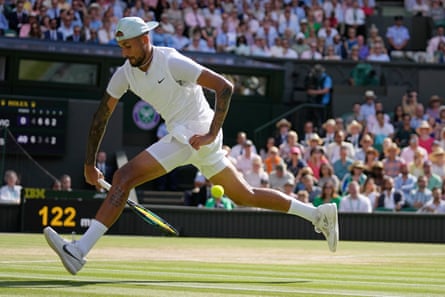
How did he play against Nadal in such a fragile state? “We have to sometimes block out what we’re going through and go to work. I can’t just run away.” Kyrgios adds: “Playing Nadal at Wimbledon and losing in a tight four-set battle? I was extremely proud. I’m just proud I made it through [his depression].”
He was so low that, “all through that year”, Kyrgios contemplated taking his life. “I was in a dark place and it didn’t get better after that moment. I was definitely struggling throughout the year with those thoughts and the self-harm. But I’ve been able to navigate that and help others.”
For Kyrgios, “anyone who doesn’t say I’m a role model doesn’t know what I go through on a day-to-day basis.
They don’t have kids messaging them for advice and saying: ‘I’ve had suicidal thoughts and you’re the only reason why I’m trying to find my way.’ I do everything I can for the youth so I think [his critics] are straight-up haters.
“But I take pride in giving back and when I see kids that aren’t super-high on confidence and are afraid of people speaking negative words at them, that’s when I can help the most, because I’ve gone through it.”
Andy Murray saw the signs of self-harm and, as Kyrgios confirms appreciatively, “he was one of the first to notice and tell me, if I needed any help, I could always talk to him.”
Three years on, in 2022, Kyrgios lost that bruising four-setter to Djokovic in the final. “The fact I’ve made the final of a grand slam is pretty damn cool,” he says. “It’s something I’ll be able to share with my kids and grandkids and show them that anything is possible. The courts around my house [in Canberra] are generally concrete with cracks in them so the fact I made a grand slam final is pretty crazy.”
Earlier in that tournament Kyrgios received a summons to appear in a Canberra court on a charge of common assault after he had allegedly pushed his former girlfriend Chiara Passari during an argument in January 2021. “All the charges got dropped,” Kyrgios says. “I knew exactly what was happening, so I just had to continue playing tennis.”
In 2023 Kyrgios pleaded guilty but he was not convicted as the magistrate decided he had “acted poorly in the heat of the moment” and that the case was at the lower end of the scale of common assault.
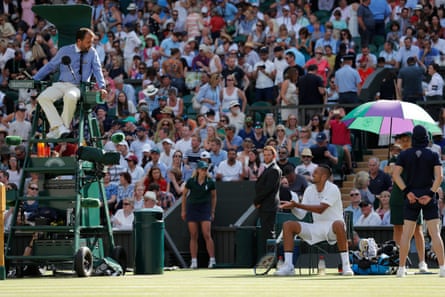
In a written statement Kyrgios expressed his contrition. “I was not in a good place and I reacted to a difficult situation in a way I deeply regret. I know it wasn’t OK and I’m sincerely sorry for the hurt I caused.”
Kyrgios was also sued after the 2022 final because he had asked the umpire to eject a spectator, Anna Palus, who shouted just before he served. He said that Palus “looks like she’s had about 700 drinks, bro” but, after legal action was instigated against him, Kyrgios accepted she had not been drinking excessively: “I was mistaken, and I apologise. To make amends, I have donated £20,000 to Great Ormond Street Hospital.”
Despite all the controversy he still believes he came close to beating Djokovic. “Definitely. It was only a couple of points here and there where, if I’d acted a bit differently, I would have had a Wimbledon title. But there’s no shame in losing to the greatest of all time. Do I think about it often? Yes. Do I think about what I could have changed? Yes. Could I have prepared better? No. I prepared amazingly.”
Two months later Kyrgios should have played Casper Ruud in the US Open semi-final but he lost a five-set match in the quarters to Karen Khachanov. “I should have won and I genuinely thought that was one of my biggest chances to win a slam. But it’s not life or death. I can’t say that losing a tennis match is catastrophic.”
Kyrgios has suffered numerous wrist, knee and foot injuries and, after struggling at the Australian Open and Indian Wells this year, he was forced to withdraw from Wimbledon. Can he come back and play in more grand slams? “Yes, I think I’ll definitely play them one or two more times. But there’s a lot of wear on these tyres. It’s a tough sport.”
Rehab and training are a “constant grind” for the 30-year-old but he expects to play in the US Open. “Yes, for sure. I’m definitely playing the US swing and I’ll take it one day at a time.”
Meanwhile, as they showed during their exhilarating French Open final, Carlos Alcaraz and Jannik Sinner are playing, in Kyrgios’s words, “incredible tennis. It’s pretty obvious those two are going to be juggernauts of the sport for the next 10 or 15 years. They pushed each other to a level that not many have played before. I think Alcaraz has that flair and X-factor of Federer, Nadal and Novak. Sinner is incredibly powerful but Alcaraz will be up there with those greats.”
Who will win Wimbledon next month? “I’ve got to say Alcaraz.”
Kyrgios and Djokovic are friends now, so was he wrong to once say the Serb had “a sick obsession with wanting to be liked”?
“No. He’s way more comfortable in his own skin now. I think he did want the crowd to love him but he enjoys being the villain. He finds energy when people heckle him. He’s the greatest tennis player of all time so he wouldn’t care as much what people think now. We have respect for each other and we are proof that different personalities can make it to the top and you don’t have to have everyone liking you.”
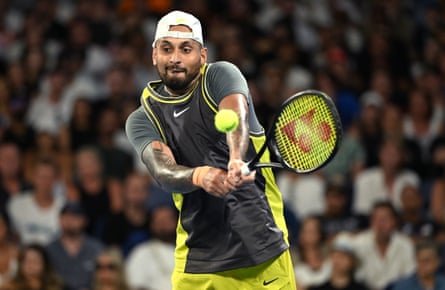
Kyrgios has been a revelation in the commentary box. “I know I’m a great commentator,” he says. “All I’ve done for 20 years is play, study and breathe this sport. I also think tennis needs commentators who say things that not everyone says.”
Yet the BBC has not signed him up for this year’s Wimbledon. “It’s unfortunate but it’s probably their loss more than mine,” he says. “I understand they’ve got Chris Eubanks [the American currently ranked world No 108] but he hasn’t beaten the greatest of all time multiple times. When someone’s beaten Federer, Nadal, Murray and Djokovic and has incredible insights, it’s very strange you wouldn’t want that person adding knowledge to tennis fans.”
Kyrgios sounds more conciliatory towards the BBC when he says: “I’m sure our paths will cross again. I only ever want to add humour, some knowledge and some great atmosphere.”
As he prepares to return to Wimbledon, and the scene of so many tangled memories, Kyrgios says: “Life’s too short for regrets. I think if you take one little block out, it all falls down. Every mistake I’ve made has given me the chance to learn and be the person I am today.”
-
Nick Kyrgios will be at the New Wimbledon Theatre on 24 June as part of his Good Trouble with Nick Kyrgios global tour. Info at fane.co.uk.
-
In the UK and Ireland, Samaritans can be contacted on freephone 116 123, or email [email protected] or [email protected]. In the US, you can call or text the National Suicide Prevention Lifeline on 988, chat on 988lifeline.org, or text HOME to 741741 to connect with a crisis counselor. In Australia, the crisis support service Lifeline is 13 11 14. Other international helplines can be found at befrienders.org

 8 hours ago
5
8 hours ago
5
